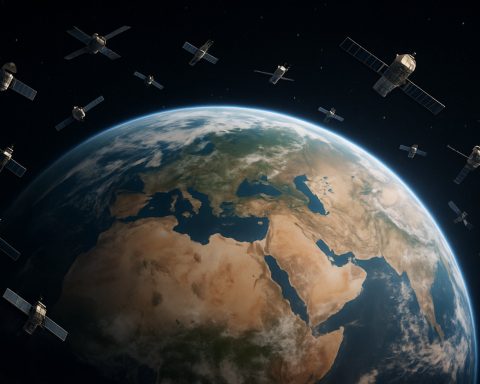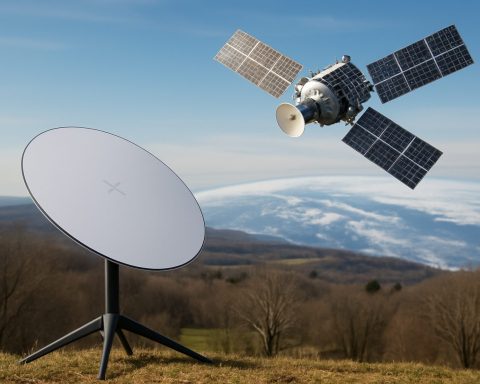- Porsche is leading an innovative sustainability initiative focused on recycling EV batteries.
- High-voltage batteries are processed into “black mass,” containing nickel, cobalt, manganese, and lithium.
- The recycling process transforms these elements into high-purity materials for new energy storage solutions.
- This initiative aims to replace traditional linear manufacturing with a circular supply chain model.
- By 2031, Porsche anticipates aligning with tighter European Union regulations.
- The strategy enhances both economic viability and environmental stewardship.
- Porsche’s efforts symbolize broader industry optimism towards sustainable practices.
Amidst a world increasingly defined by electric dreams and green aspirations, Porsche has embarked on an ambitious odyssey through the labyrinth of sustainability. This journey aims to transform fading power sources into treasure troves of elemental purity. By embracing the future with innovation and environmental responsibility, Porsche is not merely responding to the urgent needs of sustainability—it’s pioneering pathways through previously uncharted territories of technology.
In the silent hum of their newest pilot project, multitudes of high-voltage EV batteries, once drained of their last currents, prepare for metamorphosis. These batteries, a crux of the electrified automotive horizon, now face an ingenious rebirth—heralding a recyclable nirvana. Through a symphony of mechanical shredders and meticulous refinement, Porsche engineers distill a vibrant concoction of residuals known as “black mass.”
Imagine great hills of disassembled battery components, glimmering copper veins outlining a landscape of industry and environmental stewardship. These are carefully shredded and reconstituted, a process that has already yielded an impressive 65 tonnes of granulated potential. Within this “black mass” lie the intertwined fates of nickel, cobalt, manganese, and lithium—elements vital to breathing new life into Porsche’s famed electrified engines.
The storyline of these recycled components does not end with their recovery. In a dance of alchemy, they enter a purifying voyage, refining raw material into high-purity elements, critical to the lifeblood of next-generation energy storage. The precision of these processes echoes Porsche’s unwavering commitment to quality, assuring that every recycled atom meets the brand’s storied standards of excellence and performance.
A peek into the unfolding chapters of Porsche’s recycling saga reveals an emerging strategy: One that bids farewell to the linear cradle-to-grave model and embraces the circular supply chain with intent and innovation. The roadmap paved by such efforts could lead us to forests of cobalt and lithium perfectly preserved in electric powerhouses, fueling vehicles less reliant on Earth’s dwindling reserves.
By weaving the closed-loop tapestry, Porsche not only anticipates the regulatory winds from the European Union, set to tighten by 2031 but also speeds ahead into realms of proactive sustainability. The initiative stands as a testament to the brand’s foresight, balancing economic viability with environmental stewardship.
As Porsche charts this remarkable course, it sends a ripple of optimism across the industry collective—hinting that the time to transform waste into wealth, and reverie into reality, is now. This endeavor is more than a breakthrough for an automaker; it’s a powerful narrative in humanity’s enduring quest for sustainable harmony.
Porsche’s Electrifying Leap into Sustainable Innovation: A Guide to EV Battery Recycling
Introduction:
In a world where sustainability is becoming a cornerstone of innovation, Porsche is taking significant strides to redefine what it means to recycle and reuse high-voltage EV batteries. By focusing on recycling processes that transform used batteries into valuable resources, Porsche is leading the way in creating circular economy solutions that could revolutionize the auto industry.
How to Recycle EV Batteries: Steps and Processes
1. Collection and Disassembly: Disused EV batteries are collected and safely disassembled. Each component is carefully separated to maximize the material recovery process.
2. Mechanical Shredding: The disassembled battery components are subjected to mechanical shredding. This critical step is where the materials become a mixed residue dubbed “black mass.”
3. Chemical Extraction: The black mass undergoes chemical treatment to extract valuable elements such as nickel, cobalt, manganese, and lithium.
4. Refinement: These elements are further purified to create high-purity materials that can be used in new batteries, ensuring consistency with Porsche’s quality standards.
Real-World Use Cases and Benefits
– Resource Efficiency: By recycling these components, the automotive sector can significantly minimize its reliance on raw materials, which are both costly and environmentally taxing to mine.
– Cost Reduction: Reducing the need for mining helps cut costs in the long term, making electric vehicles (EVs) more affordable.
– Regulatory Compliance: Initiatives align with impending European Union regulations that aim to mandate a higher degree of battery recycling by 2031.
Market Forecasts & Industry Trends
– Investment Growth: The market for battery recycling is expected to grow exponentially as more automakers adopt sustainable practices.
– Technological Advancements: Innovations in battery technology and recycling methods will continue to evolve, potentially decreasing the cost and increasing the efficiency of EVs.
Pros & Cons Overview
Pros:
– Environmental benefits due to reduced mining
– Economic incentives for using recycled materials
– Regulatory compliance and future-proofing
– Improved sustainability and brand reputation
Cons:
– Technological complexity and initial investment costs
– Possible supply chain challenges
– Recycling efficacy can vary with different battery chemistries
Actionable Recommendations
– Consumer Awareness: Encourage consumers to return their EV batteries for recycling, reinforcing sustainability efforts.
– Partnerships: Collaborate with other automakers to enhance recycling capabilities and create industry-wide standards.
– Continued Research: Invest in R&D to improve recycling technologies and explore new avenues for material recovery.
Conclusion
Porsche’s commitment to recycling EV batteries illustrates a crucial shift towards sustainability in the automotive industry. By transitioning from a linear to a circular supply chain, automakers can significantly mitigate environmental impacts while also reaping economic benefits. This groundbreaking shift in battery recycling offers a promise of a more sustainable future, propelling the automotive sector into a new era of innovation.
For more information on Porsche’s initiatives, visit the Porsche website.











